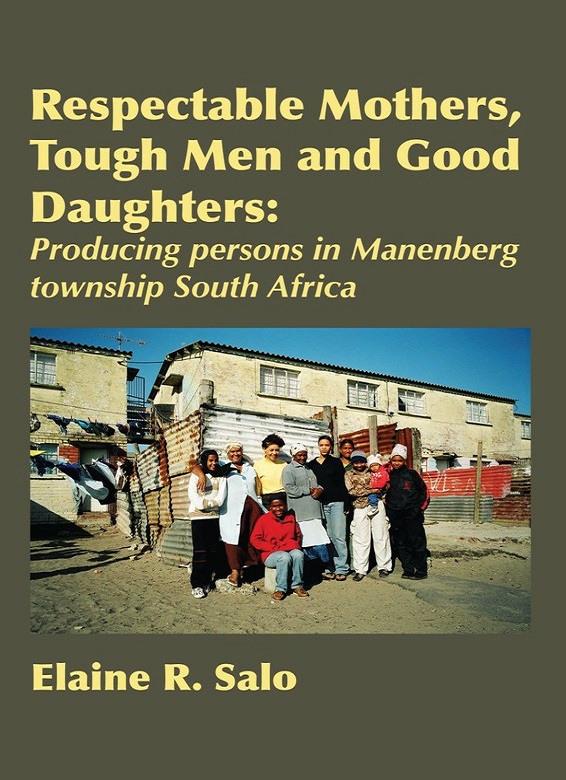written by Elaine R. Salo
Producing persons in Manenberg township South Africa
The book examines how men and women in Manenberg township, on Cape Town’s inner periphery, manoeuvre to re-define themselves as gendered persons deserving of dignity, through the quotidian practices of ordentlikheid or respectability. Salo shows how reclamation of dignity is an intergenerational and gendered process that is messy and uneven, involves the expression of often-brutal physical and social exclusion of individuals through embodied and social violence. Theoretically, the narrative makes visible the careful, painstaking processes of place making and claiming dignity by men and women in a place represented as a wasteland in the dominant discourse of grand apartheid and in the contemporary neo-liberal turn in Cape Town.
| ISBN | 9789956550265 |
| Pages | 318 |
| Dimensions | 229 x 152mm |
| Published | 2018 |
| Publisher | Langaa RPCIG, Cameroon |
| Format | Paperback |




3 comments
‘Elaine Salo’s book compels anthropology to rethink its method as theory and theory as ethics. It foregrounds the practice of living fieldwork—“in which the field is home”— that defines her work and decades-long commitment to mentorship, care, and advocacy of “Others” that has reshaped the discipline.’ Anne-Maria Makhulu, Duke University, USA
‘The first to use the lens of respectability – ordentlikheid – in South African anthropology, Salo introduces us to the minutiae of quotidian life for those who self-define as unemployed and/or working class coloured men and women. Detailing the moral economy in Manenberg, she weaves locality, personhood (identity), respectability politics, hegemonic masculinity and intersectionality into an evocative text that resonates with authenticity and lucidity.’ Joy Owen, University of the Free State, South Africa
‘Salo shows how differentiated notions of personhood are formed and how mothers, men, and young women understand and shape their life opportunities through concepts of respectability, motherhood, toughness, and sexuality. This will be a highly influential book.’ Corinne Kratz, Emory University, USA